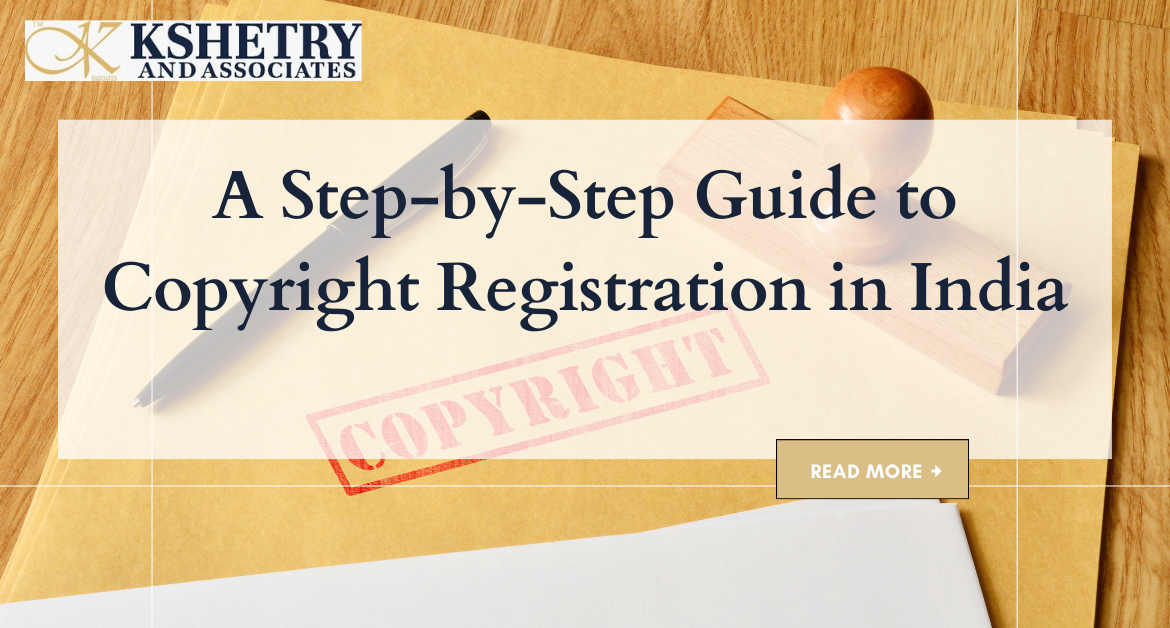Intellectual property is a legal system that safeguards mental creations, such as inventions, artistic and literary works, designs, symbols, and trademarks. The emergence of the digital era, driven by new technologies and the internet, has fundamentally altered how intellectual property is produced, disseminated, and used. It acts as the essential legal framework for protecting creative outputs. This shift has introduced new challenges for intellectual property rights holders, governments, and consumers. Copyright registration is a necessity to protect your intellectual property.
Copyright Overview
Copyright is a legal concept that grants writers and artists the authority to use their original works, whether they be music, art, or literature. Books, movies, music, photos, software, paintings, architectural designs, and sculptures are all protected. The creator’s control over reproduction, distribution, adaptation, and public display of their work is protected by copyright.
Once an original work is created and fixed in a tangible medium, such as written or recorded form, copyright protection is automatically granted. However, copyright registration enhances the creator’s legal standing and provides additional benefits.
Basics of Copyright Registration in India
What is Copyright?
The legislation grants copyright to authors, playwrights, musicians, and artists, as well as to those who make sound recordings and cinematograph films. It encompasses a wide range of rights, such as the ability to reproduce, communicate, modify, and translate the work. Depending on the kind of production, these rights may have different components.
Original works of literature, music, theatre, sound, film, and other artistic mediums are protected against unapproved use under the Copyright Act of 1957. Copyright protection is available for both published and unpublished works, with the original creator’s rights being maintained. For works published before the Copyright Act’s enactment on January 21, 1958, copyright registration is also possible.
Is Copyright Registration Mandatory?
In India, copyright registration is optional. However, in the event of infringement issues, its registration may be used as initial proof in court. The Registrar of Copyrights handles the registration procedure, which entails completing an application and sending it in with the necessary paperwork and payment.
Benefits of Copyright Registration:
- Prevents unauthorized use, replication, reproduction, and sale of original works or inventions.
- Prevents others from using identical marks, resolving such problems before they happen.
- Saves time and money on legal actions by making it easier to issue cease notices to stop unauthorized use of the author’s work.
- Makes the work searchable in the copyright register database and worldwide recognized.
- Safeguards the author’s or creator’s distinctive style of expression and improves the reputation of the copyright holder.
- Makes it simpler to take legal action against violators thanks to the Copyright Act of 1957’s provisions, which include fines of at least INR 50,000 and jail terms ranging from six months to three years.
Consequences of Not Registering Copyright
Unregistered copyright holders have several drawbacks.
- Unregistered copyright holders find it challenging to demonstrate their ownership or exclusive rights.
- Unregistered works are more likely to be copied or reproduced.
- It becomes difficult to prevent unwanted usage.
- An infringement lawsuit can only be brought once the copyright has been registered. It becomes difficult to prove ownership without registration.
The primary proof of originality is provided by registered copyright. In infringement instances, it also increases the likelihood of obtaining statutory damages and legal expenses. Unregistered copyrights, on the other hand, can only be used to recover real damages and the profits made by the offender.
Process of Copyright Registration in India
Assess Eligibility
Six types of works are listed in the Registrar’s register:
- Literary works that are not computer programs.
- Musical compositions.
- Artistic creations.
- Cinematograph movies.
- Records of sound.
- Compilations, tables, and computer applications.
Prepare the Application
The following actions must be taken in order to achieve copyright registration:
- Send in an application in FORM XIV with the necessary fees listed in Schedule 2 of Copyright Rules 2013, together with your particulars and claims.
- You have to submit a different application for each project.
- Fees for various works are listed on the official government website.
- A Vakalatnama, or Power of Attorney, must be signed by the applicant and an advocate.
Processing the Application
- After issuing a Diary Number, the registrar requires a 30-day waiting period for objections.
- The application is examined for inconsistencies if no objections are raised. Registration is finished, and an extract is added to the Register of Copyrights if it is determined to be accurate.
- The examiner holds a hearing and notifies both parties if objections are made. The application is either accepted or denied based on the result.
Costs Associated with Copyright Registration
The costs for copyright registration vary by type of work:
- Literary, dramatic, musical, or artistic works: INR 500 per work.
- Cinematograph films: INR 5,000 per work.
- Sound recordings: INR 2,000 per work.
- Applications for extracts or certified copies: INR 500 per work.
For additional fees related to licensing or amendments, the official website provides detailed updates.
In Conclusion
In India, copyright registration is essential for protecting intellectual property. It boosts protection, makes enforcement easier, and gives artists a safe way to preserve their rights. In order to guarantee legal compliance and provide the groundwork for a safe and creative future, creators should give registration first priority.
Also Read: Understanding Property Disputes and Real Estate Laws in Kolkata
References:
https://unfoldlaw.in/intellectual-property-rights-in-digital-age/
https://cleartax.in/s/copyright-registration-india-explained
https://copyright.gov.in/frmfeedetailsshow.aspx

